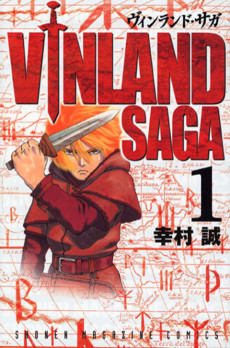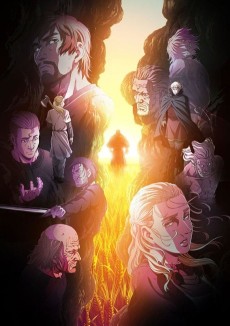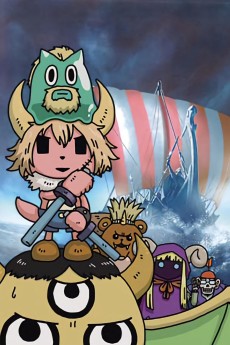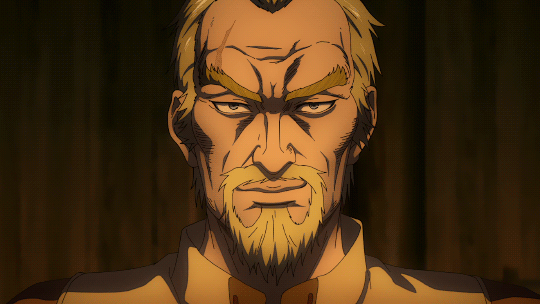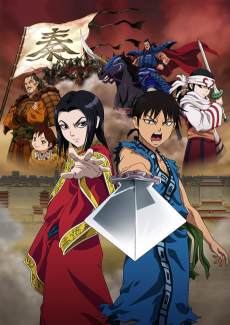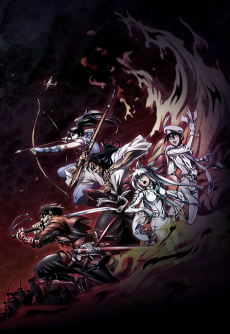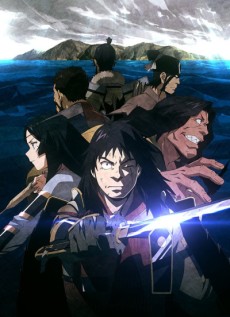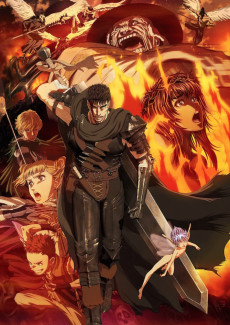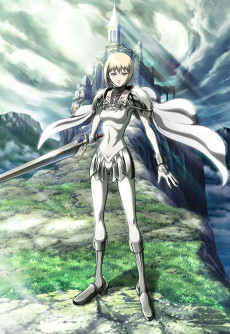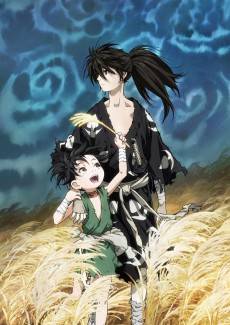VINLAND SAGA
STATUS
COMPLETE
EPISODES
24
RELEASE
December 30, 2019
LENGTH
24 min
DESCRIPTION
Thorfinn is son to one of the Vikings' greatest warriors, but when his father is killed in battle by the mercenary leader Askeladd, he swears to have his revenge. Thorfinn joins Askeladd's band in order to challenge him to a duel, and ends up caught in the middle of a war for the crown of England.
(Source: Kodansha USA)
CAST
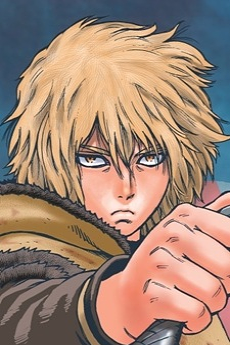
Thorfinn Karlsefni
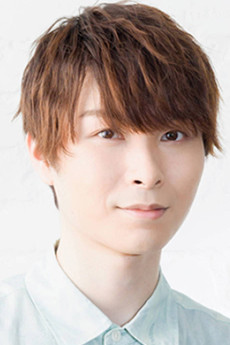
Yuuto Uemura
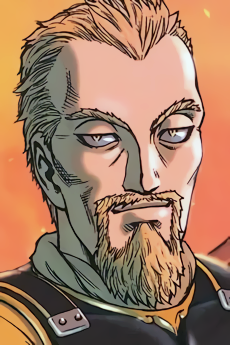
Askeladd
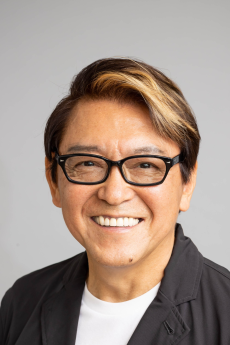
Naoya Uchida
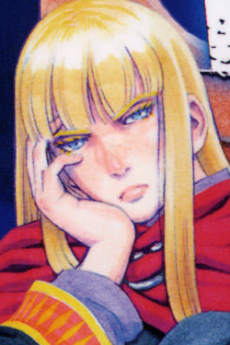
Canute Svenson
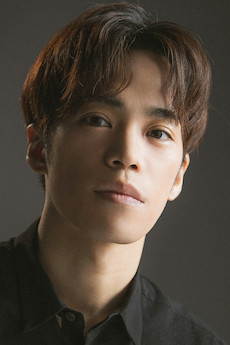
Kenshou Ono
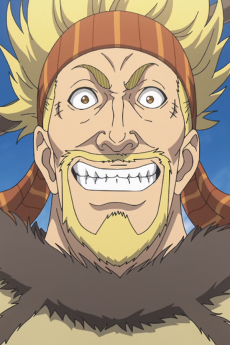
Thorkell
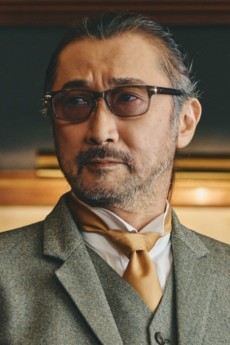
Akio Ootsuka
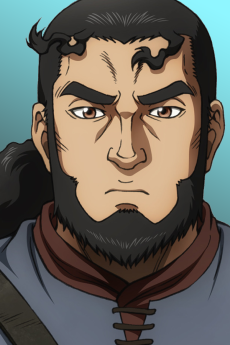
Thors Snorresson
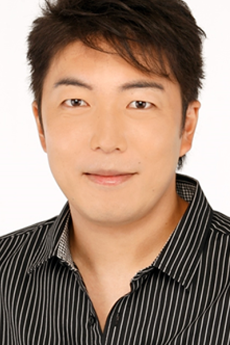
Kenichirou Matsuda
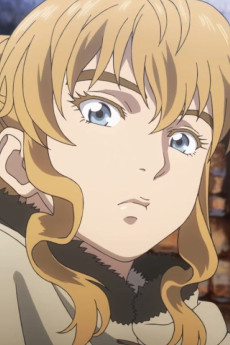
Ylva

Hitomi Nabatame
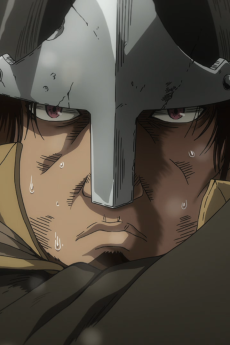
Bjorn
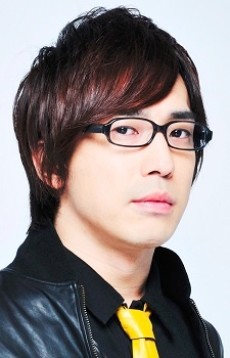
Hiroki Yasumoto
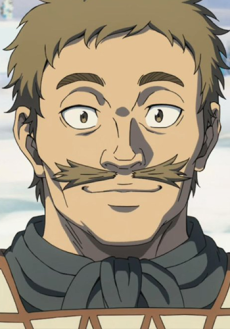
Leif Erikson
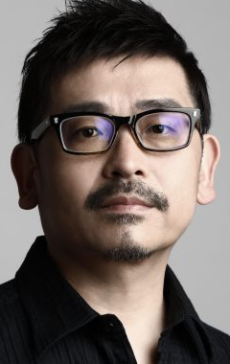
Youji Ueda
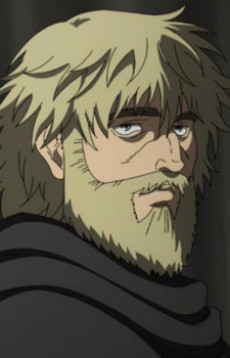
Willibald
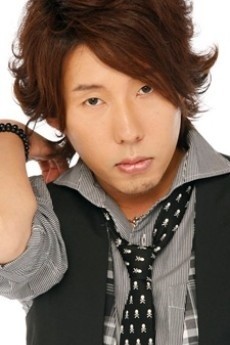
Satoshi Hino
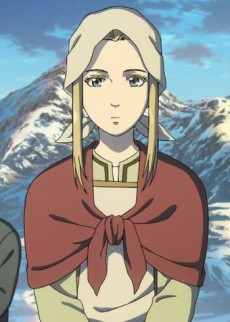
Helga

Ao Takahashi
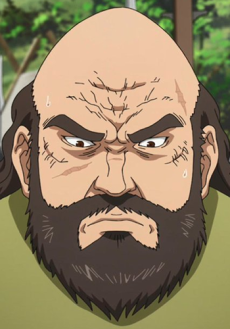
Ragnar
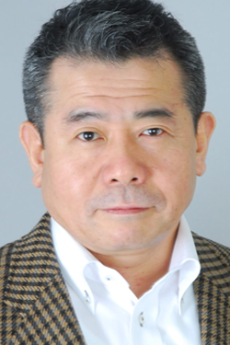
Jin Urayama
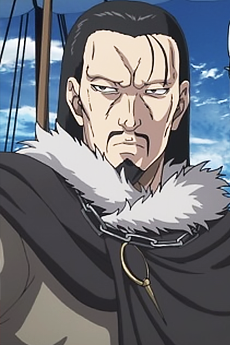
Halfdan

Yoshimitsu Shimoyama
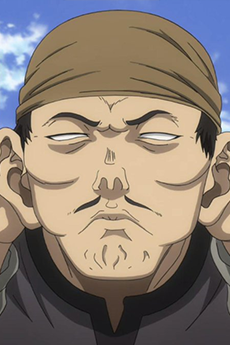
Mimi
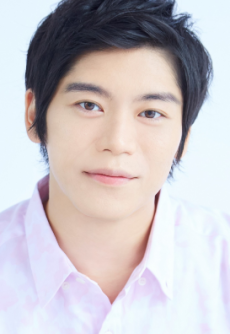
Makoto Furukawa
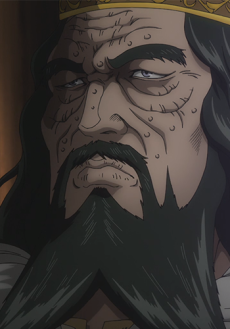
Sweyn
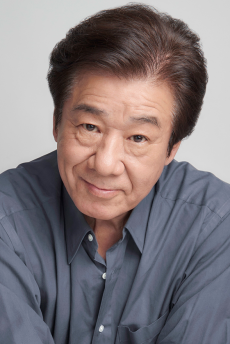
Takayuki Sugou
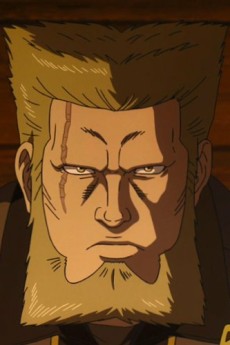
Floki

Atsushi Ono
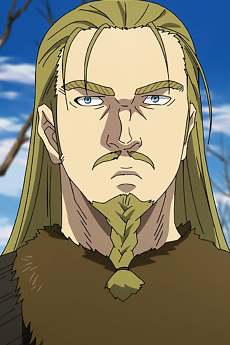
Asgeir
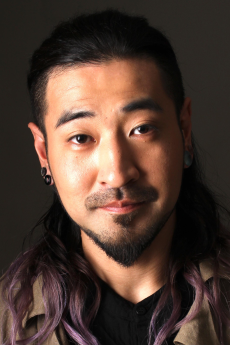
Ryouta Takeuchi
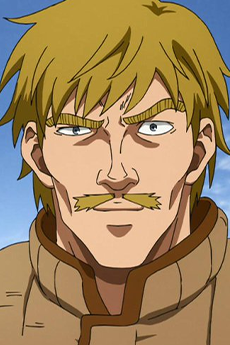
Atli

Shinya Takahashi
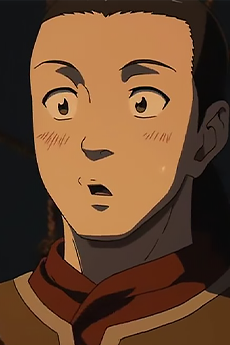
Ari

Mitsuhiro Ichiki
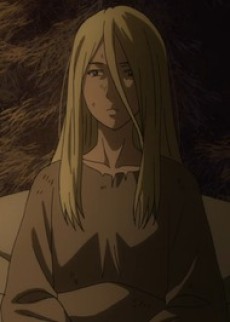
Lydia

Sayaka Oohara
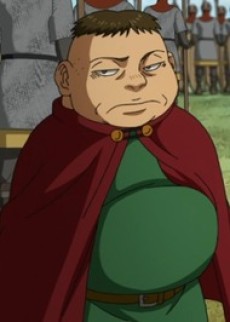
Jabbathe
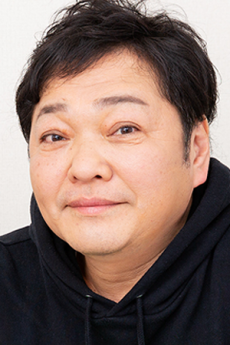
Kappei Yamaguchi
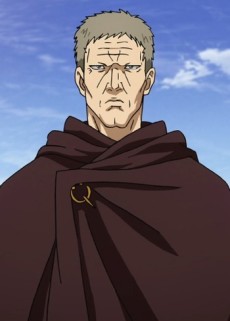
Gratianus
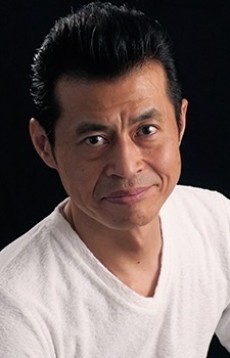
Jirou Saitou
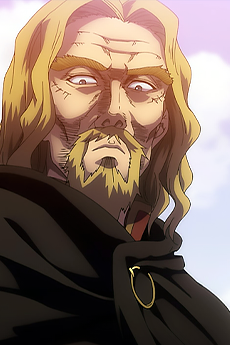
Olaf

Jirou Saitou
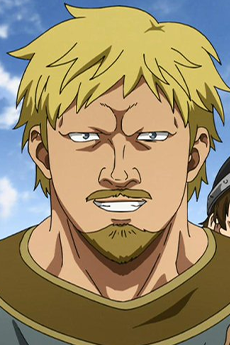
Torgrim
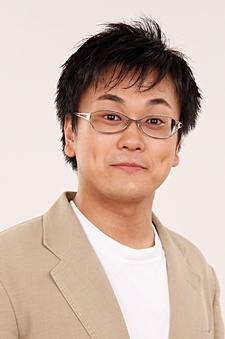
Hiroki Gotou
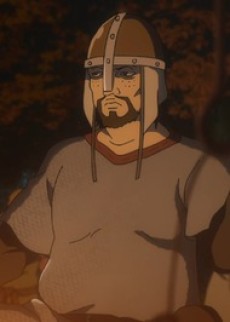
Tore
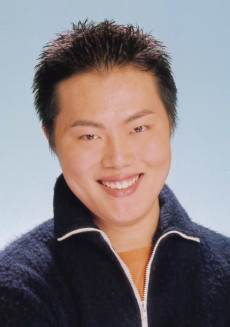
Tsuguo Mogami
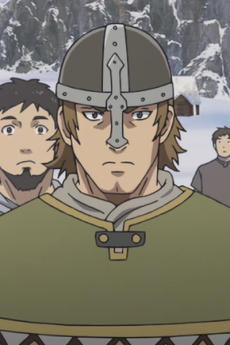
Mord

Masato Niwa
EPISODES
Dubbed
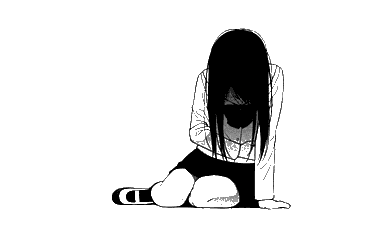
Not available on crunchyroll
RELATED TO VINLAND SAGA
REVIEWS

CodeBlazeFate
84/100Nothing is going to stop Vinland Saga from being one of 2019’s greatest, not with a core and finale as powerful as thisContinue on AniListThe first arc of Vinland Saga has been touted as one of manga’s greatest prologues. As such, many were curious about how well the anime would fare. While it may seem like a mere revenge story at first, this 24-episode series acts as a GAR infused yet slow-burning meditation on vengeance and war, as well as the thrills and horrors that await. Moreover, it's a character study revolving around the arc's main protagonists: Thorfinn and Askeladd. They make up the tragic backbone of the show, and that backbone is powerful enough to cement this show as one of the best of the year.
Visually, this show is both better and worse than one might think. The CG ships and occasional CG humans are enough to set alarm bells off, and their prevalence would help spell the death of lesser productions in terms of quality. Even this show can look terrible at times, since not every episode is as detailed as one another and some make use of awkward CG environments way more than others. Sometimes the animation can really falter, leading to jank frame rate issues like in two critical moments of episode 4, or just a few really terrible sequences. However, director Shuuhei Yabuta has improved significantly from his last full directorial work, Inuyashiki. On top of that, Studio Wit tends to make anime with worthwhile production values, and he’s been their main man when it comes to CG for years. He knows what he’s doing, and it shows more often than not. Some big scenes lack the weight they should, but Vinland is so chock full of them that Yabuta’s given plenty of chances to add a visceral sense of weight and detail into several of the more explosive or otherwise powerful scenes. Seeing Thorfinn’s face in great detail as he huffs in seething rage for the first time or witnessing the sheer impact of Thorkell punching a horse into the air made for some of the craziest moments of the year. Those aren’t even the more tremendous moments he gets to adapt from this arc, either. Some camera movements such as the few first-person perspective 3D sequences are also eye-catching. Even more impressive is the artwork. Most of the time, it’s incredibly detailed, almost on the level of something like the Gundam Origin OVAs or the 1995 Ghost in the Shell movie. The art direction also leads to some stunning environments, like the horizons of Iceland or the golden crops of Vinland. Combined with Shuuhei Yabuta’s direction, some of these sequences that bask in the environments become breathtaking. A lot of the fight scenes have their incredible, weighty moments as well such as the first half of the fight between Askeladd and Thorfinn’s father in episode 4. The show straddles the line between looking amazing and looking terrible disturbingly often, which is a shame since without some of the jarring dips in quality here and there and with superior (or no) CG, the show would be one of the most well-produced anime of the year by far.
The music is also a bit complicated. Yukata Yamada does provide a rather decent score for this anime, with a fair number of emotional pieces and early medieval tunes that often serve as highlights from the very beginning. The tracklist does seem a bit limited as evidenced by how the anime likes to make constant use of one singular piano track for most of the emotional scenes in the show. There are multiple piano tracks so some of them might even be used interchangeably. Additionally, a lot of pieces don’t quite feel tailor-made for this show or setting and instead feel like tracks that could have gone to any other dramatic title. The few that do feel perfect for the setting are not only some of the greatest tracks in the show but are unfortunately rarely used outside of the first quarter of the anime. I don’t mean to be too pessimistic with the soundtrack since there are still several nice tracks present, but the show ends up throwing a lot of them by the wayside and the ones the show uses more than a couple times don’t feel like they add a sense of identity to the show like say, Kaguya-sama’s OST did this year or like other fantastic OSTs such as Berserk 1997’s do for their shows. The first opening is honestly no better, feeling like a generic j-rock song with forced and hideous sounding screamo towards the end. It’s my least favorite piece of music in this entire show. The second opening, “Dark Crow” by MAN WITH A MISSION is a far more hype opening, with the wake-up call of the bagpipes at the beginning, and a rockin’ tone throughout. The first ED, “Torches” by Aimer, is a decently calming and pleasant enough piece, though it doesn’t feel as impactful with its chorus as I would have liked. The second ED, “Drown” by Milet, is more emotional and impactful, and it’s probably one of my favorite ending themes of the year. It’s perfect for the explosion of tremendous emotional moments and character development that is the second half of the show.
The first few episodes of the show center around how the last stand of Thorfinn’s father, Thors, as well as the different phases of his upbringing before and after that moment, affect Thorfinn. He always had the potential for violence, after all, he and his people practiced war games all the time as they waited for the day they could finally join a war. However, he was still a child at heart, so seeing him turn from that innocent boy to an angsty killing machine is devastating. Few moments hurt quite as bad as the moment he resigns to his fate and accepts how horrible the path he takes is going to be in episode 6. That sigh of resignation seeing someone he hurt who genuinely wanted him to live the life of a boy again, and how that reminded him of the family he’s sure he’ll never see again, is a brilliant capstone to the first quarter of the show. Many have levied criticism of how stagnant he becomes in later episodes, as his single-minded drive to honorably kill Askeladd dominates his character. However, there are a few points worth bringing up to argue against that notion. He still has plenty of moments to be more than just that kind of person, like during his interactions with the then scared and reserved prince Canute, where he teases him halfway into the series. He’s not like Hajime from Arifureta or anything. He also thinks about how far he’s fallen from his father’s ideals, agonizing over how much worse he’s become since the man’s death despite how much he refuses to admit it to anyone else. His dreams and hallucinations are well-crafted reminders of his humanity and folly. These factors, as well as his stagnant nature, also serve as a form of tragedy. Not only is he painfully aware that he could drop this and not continually sully the message of the man he ultimately idolized, but he also serves as a reflection of who his target of hatred, Askeladd, used to be.
By the time the halfway mark rolls around, Askeladd becomes the true star of the show. He’s long since grown past the vengeful killer he was as a child and has become a cunning man of ambition. He is the epitome of the glorious side of the show, with his glorious cackles being the cherry on top of each crazy plan that gets executed. He’s a proper magnificent bastard who would honestly be a standout character even if he were just a glorious, over the top schemer with a strong personality. However, he’s far more than just that, both as a foil to Thorfinn and as a person in his own right. Each reveal about why he became the man he is, about his feelings towards everyone around him, and about why he sees something in both Canute and Thorfinn, adds more to his personality and his journey throughout the series. To spoil his journey any further would do you a disservice, but let it be known that he is easily the richest character in the entire show, and my favorite character to have been introduced to the anime landscape this year.
There are other noteworthy characters beyond just the main two. The aforementioned Canute has a surprisingly natural and tactile sense of progression when it comes to his development, and even when he’s still in nervous prince mode, he has a few cute interactions courtesy of Thorfinn teasing him. Thorfinn’s father, Thors, leaves a lasting impression for someone who only lasts for 4 episodes and whose death is used as the sole motivator behind Thorfinn’s revenge quest. One might think of him as just this perfect ultra badass dad who’s so good he doesn’t need to kill because that’s just wrong. He’s also a bit of an oaf at times, like when he can’t fix a pot and complains about it being too hard or when he’s too nervous to properly tell his wife to tell his kids that he loves them when he departs. He certainly has this brick shithouse giga chad vibe that the series exploits to great effect in the early episodes, but it’s the little things and how his actions affect the likes of Thorfinn and Askeladd during his final moments that make him surprisingly compelling. Another minor character from the early part, Ylva, is one of the more fun takes on the beleaguered teenage daughter and big sister character. She's one of the more entertaining and comedic characters of the early part along with Leif Erikson. In fact, seeing what she does following the death of her dad and disappearance of her little brother is perhaps the most compelling part of the 5th episode. Leif himself is even more humorous as the sort of adventurous and sarcastic goofball before the fourth episode changes him and steels his resolve for when he reappears later towards the end of the series. There are more characters that get similar levels of detail and charming presentation, including some of Askeladd’s Vikings and the larger than life ax-wielding maniac, Thorkell. There are other characters who get their own powerful emotional moments. However, this review would drag on and risk containing critical spoilers if I continued.
The slow-burn narrative is a deeply somber one. Several episodes subject the viewer to horrifying village raids, the most soul-rending of which occurs in episode 14 which features a girl struggling with her faith before watching her entire village get slaughtered. There are many impactful deaths throughout as well starting from the death of Thors. Almost every major death is handled brilliantly. Thorfinn’s character is a miserable one as he laments the death of his father and his deals as Thorfinn kills and kills in a series of raids and wars. Everyone is richly characterized as people, adding further weight to the tragedy of the many deaths of the show and how people cannot simply be described as allies or enemies as if it were a black and white matter. Thors was right, and he died proving that fact and getting his murderer to spare the lives of everyone who accompanied him. There are plenty of glorious moments, like the entirety of episode 7 or some of the major developments characters go through later on. There are several epic battles between GAR as hell Vikings whose feats live up to the kinds of tales that real-life Vikings and villagers from this show’s time period boasted about and wrote into mythological canon. However, even with characters whose might rivals the likes of Beowulf himself, the show never forgets that they are people engulfed in war, and that there are many tragedies and atrocities that come with that kind of territory. Victories are grand but also fleeting, and even the most painfully meticulous and drawn-out plan Askeladd comes up with that lasts the entire third quarter of the show, is filled with sorrows before paying off spectacularly.
Are there errors? Sure. Some of the dialogue reeks of words and phrases that could have never existed in the time period the show takes place in. Sometimes water doesn't react to anything moving in it and there are some animation errors. The CGI is pretty terrible. The anime original scenes in the 5th and 6th episodes as well as towards the end aren’t quite as good as most of the adapted material. Thanks to every bit of dialogue being written and spoken in one language, it’s a tad jarring when characters apparently switch languages. The 7th episode should have been the first episode as it loses some of its hype when following up one of the most somber moments in the entire show, and it would have better conveyed what the show was going to be from the beginning than the current first 4 episodes do. However, barring that last one being a potential reason for many being disappointed in Thorfinn’s character and how Vinland puts other ideas and plots above its revenge story plot, none of these are significant issues. How can they be with characters this expertly written and writing this incredibly presented? Even if the audiovisuals are a bit inconsistent and not as great as they could have been, they still support most of the show’s incredible moments. Even if there are lulls here and there, the show’s characters and payoffs more than make up for it. Nothing is going to stop Vinland Saga from being one of 2019’s greatest, not with a core and finale as powerful as this.
Written and edited by: CodeBlazeFate
Proofread by: Peregrine, who will be retiring after this review. What a wonderful show to send him off with. I wish my friend well.
KaizokuOtaku
80/100One of the best antagonist ever and a written story that will stay with you for a life time. One of the best of 2019Continue on AniListVinland Saga is most definitely one of a kind story and one that really puts your intelligence to the test. It's one of the few I consider a masterpiece in the making as it might be easier to see those qualities more clear if you have read the manga. For now, let's discuss the anime, where studio Wit pulled out all the stops and served an incredibly amount of justice and created a fantastic adaptation. I would go as far as to even call it "perfect." I can imagine that even the manga readers would not have a problem with such a massive statement. It took everyone by storm when it first hit the screens and blew all the expectations out of the water for many. It's no doubt that Vinland Saga is an anime that will keep close to everyone's heart, and it's a prime example of a beautiful adaptation that exceeds the source material. Of course, let's not forget about Attack on Titan, which is another anime done by Wit studio and breathtakingly exceeds the manga in many ways.
I have to say this first Vinland Saga is among the most challenging stories to properly describe. There are multiple plot threads, and character that plays a massive role you have to take into account, and it's hard to connect everything together through words. But I'll try my best. I could start off by saying it's an intense and complex character study heavily focused on both Thorfinn and Askeladd. The story starts out simple and straightforward. Vinland Saga could take any number of directions. It's basically a slice of life of this nice and wholesome family in Island, who lives their day to the fullest. That is until one of the most influential and powerful viking groups come knocking to take their pal back with them to war. Our supposed main Thors was in the past, one of the strongest viking warriors to ever live. Until one day he up and left and built a wonderful family, and didn't want anything to do with iron and blood any more. But because of an iron rule, he is pulled back to the one thing he now hates, and ultimately dies at the hands of pirates.
His son Thorfinn, who had a sense of adventure and was this naive innocent guy previously. Now is set on killing Askeladd, the guy who more or less set up his dad to get killed cowardly. That's the story in a nutshell if you just look at the outer layer and not deeper into things. But not at all, there is so much more than meets the eye here. Vinland Saga is intricate, deep, and very philosophical, and there are multiple plot threads to take into account, as I have stated earlier. There are so many episodes that ask a tricky question. We had many brilliantly executed episodes that showcase the brutality in this period and are trying to convey something profound and heavy to the audience to boot. Our character is trying to either reach one of those things or stay stuck in the past with wars and pillaging, raping. The story is set in the 10-11th century when the vikings ran wild everywhere. And nations were conspiring to take over other lands by the use of warfare and death till one side achieves their goal entirely.
At this time, the previous residents would have forcefully been slaved to work, killed. Maybe even raped since there was no proper system at place to take care of such disgusting acts back then. I feel like Vinland Saga is trying to show us the dirty side of the world. While at the same time building to a better tomorrow through actions of the character. I think it's a realistic depiction of life, acceptance, and of course, growth. It's a story that makes much more sense the further you dive, to put into perspective. Vinland Saga is a massive puzzle piece, and while the first season answered some question through actions and subtlety, not everything might be entirely clear to some, So you might not know the full picture, as you first thought. Not to mention, this whole first season is merely a big prologue. It's about 50 chapters worth of content, the anime adapted, and yes, it sounds crazy. But that's actually the truth, believe or not.
Character is one of the key pillars of Vinland Saga, as you can see. They all feel real and important to the overall narrative. But there is one that stands above everyone. Askeladd is such a person, and without going into too many spoilers. He is easily one of the best-written antagonists you will ever see. There are so many things I could throw at you for hating him, but I have tried, and I can't help but appreciate him. Some might succeed, but I have a hard time believing you will hate him till the end. Yes, it's hard to hate such a savage cunning, witty and manipulative mad lad who has so freaking much personality and is an extremely well-written character. I could see Thorfinn not hitting off that well with many. He might come off as annoying at times since his dedication to revenge is extreme, and he might come off as linear and easy to a lot of people. It's not until toward the end, you see his potential of complexity, and once a season two arrives, it will be shown to everyone in full detail. Vinland Saga art-style, it's no doubt a piece of art and is stunning. I can't help but be mesmerized by the beauty and amount of details studio Wit puts into this adaptation.
I can't tell you the number of times I had to stop and take a screenshot of a stunning background since I just loved how bright and vividly it was depicted. Wit didn't fail to nail the mood, and each shot represents the vibe perfectly and elevates the emotions. That goes for the character details too, which looks and feels so real. The expressions are distinctive, and the level of detail is just as crazy as the background. There is gore here too, so don't expect heads and limbs flying are not to be fully censored. As for the visuals, the movements don't come off as stiff and feel fluid and dynamic. When it comes to the action scenes, it's nothing short of top-notch either. It will have your eyes glued to the screen, and you might even find yourself replaying a couple of scenes, because of just how immersive and impacting it feels. It was undoubtedly a blessing to have Wit studio adapt Vinland Saga, and they made it an unforgettable, fulfilling and an exhilarating experience without question.
Let's also add some love to the soundtrack, which nails every given setting and atmosphere to a teeth. Wit is fully able to utilize art, animation, and soundtrack together to create a sense of balance between them and really nail the emotions and scenery with the gorgeous background. I don't cry easily, and Vinland Saga made me shed tons of waterfall to the point my eyes almost got dry. As for the opening and ending song, every single track is the art of beauty and delightful to listen to. I honestly don't hate any of the tracks and was easily absorbed into the music and visuals. And both endings are beautiful and hits strong and are packed with emotions and lots of symbolism like the openings. Suffice to say, Wit Studio made Makoto cry tears of joy to see his masterwork handled so delicately and with so much care and passion.
What's negative about Vinland Saga? I am trying to wrap my brain around it, but I didn't see a thing I felt irked me to no end. There were short moments here and there where the art-style looked scruffy, but it was barely enough to cause a huge commotion. It's totally understandable Wit would have few mishaps here and there. Since they have been adapting with the utmost care and heart since the beginning. So all the animators must have felt exhausted by the end of an episode. It's more surprising they were able to deliver this kind of quality for a whole season. I have really nothing terrible to say about Vinland Saga. It's a solid adaptation in my eyes all around, and you would have to be really picky to find something terrible with it if you ask me. Maybe I could throw out the CGI was not the most pleasant whenever it was in use, but I hardly noticed, so it was never a problem for me personally.
Overall I highly recommend Vinland Saga, but I will say this too, it's sadly not for everyone. The more mature audience will enjoy it more, and it's a slow burner, so not everyone will fully appreciate it. It's also important to be aware of that Vinland Saga is profoundly character, philosophical, and historical driven story. So certainly not something you see every day and unquestionably one of a kind story. The best way to know for sure if you will enjoy it or not is to see the first few episodes and see what you think for yourself. Also, the story relies on your brain and Wit, and your interpretation might be different from many. It's not something you can fully grasp in the first watch easily. Anyway, we have more than enough content for a sequel, so let's cross our fingers in anticipation as we wait for one. The ending hints at one. I will say this much tho: its gonna be another unique experience compared to the first part. This was easily one of the best anime of 2019, if not the best, and I urge everyone to give it a shot at some point in your life. Vinland saga might possibly be a story that will stay you with for a lifetime, and it's an incredibly written one at that.

Krankastel
50/100Had potential, but was undermined by a spiritless production and much poor writing.Continue on AniListGreetings ladies and gentlemen, I will cut straight to the point. Have you ever experienced a work with an intriguing premise capable of appealing to you… being undermined by a plethora of flaws and handled half-heartedly?
Vinland Saga is such a case. I do not consider this to be a great anime, let alone the AoTY; for all (or actually, because of) my love of medieval history, I couldn’t resist reviewing this too ambitious-for-its-own-good work.
Note: this work may contain spoilers, at the final section for the plot.
__[1. Starting with the visuals...]__ (-) The animation is often simply put, lackluster. And it shows early: at the first episode we are shown a flashback to a naval battle where Thors (the protagonist’s father) participates, based on the Battle of Hjörungavágr. Immediately, we are greeted with ugly CGI. For example, water does not feel natural at all, but rather as some industrial sludge.
This gets worse during later parts, for CGI utterly fails to not stand out like a sore thumb at animated sequences. The blending of hand-drawn animation with CGI is poor, with certain sequences having a rather unnatural feel. One of my biggest complaints though has to do with abusing stills and limited animation.
Before presenting examples, I want to say this loud and clear: I do NOT look down on any animation techniques, but here the execution is full of eyesores and inexcusable. When decent CGI is featured on Land of the Lustrous or when Kill la Kill uses limited animation to save budget while oozing originality, I find it odd that WIT failed to achieve harmony. The production often screamed sloppiness and cutting down costs rather than presenting something worth its hype.
Anyway, at the aforementioned battle we are treated to an aerial view shot of miniature toy soldiers “fighting” on longboats… resembling sequences in some B-grade browser strategy game. With these longboats floating on the aforementioned CGI sludge.
Concerning limited animation and stills, they are abused for crowds, the result being jarring and ill-fitting. Mostly in duels, but is rather commonplace for enemies to be frozen in place before getting slaughtered by characters forcibly being established as master fighters.
(+) The art is not perfect, and in fact, can feel bland and drained of detail. Examples include longboats, distant crowds, fortifications, armor, etc. They often lack eye candy and polish and the palette feels too “worn out”, despite the fact plain colors can draw the best qualities out of the historical genre.
Nonetheless, I include art in the positive aspect for two reasons. First of all, each person depicted has a different build, clothing and facial features, including freckles and scars. The second is the backgrounds. Whether an Icelandic settlement wracked by the elements, the town of York or a mountainous passage in Wales, there is a plethora of gorgeous landscapes that caught my eye.
__[2.About audio...]__ I won’t say much, despite valuing sound direction, voice acting and music a lot. I’m mostly content, though I would prefer a more medieval-sounding OST rather than one fitting for a stock shonen.
Characters from different peoples were supposed to be unable to communicate, but all lines are in Japanese. I recall the first chapter featuring Franks speaking in (nonetheless modern) French when in the presence of Norsemen, to portray this. An understandable break from reality, given how difficult it would be to include lines in Welsh, Old Norse, etc. But it still seemed odd.
__[3. On to the characters...]__ (-) I’m either neutral or dislike most of them. Thorfinn is a flat revenge story protagonist: being obsessed, brooding and resentful are his primary traits. He is static, never takes notice of the surrounding environment to contemplate and thus is easily manipulate, though it would probably be fair to note he is a child soldier whose hated person acts as his raîson d' être.
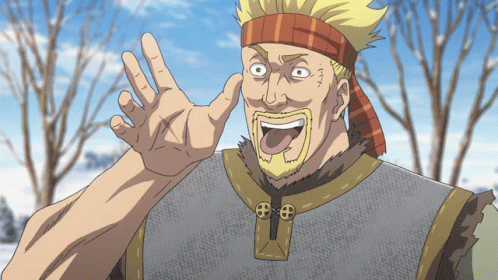
Thorkell is mighty and larger than life. Given the setting and his culture, his character somewhat fits but to an extend also ruins the tone; multiple sequences and lines are straight from B-grade action films, one of the worst offenders being his debut at the first episode. Still, the ones that left me with the sourest of impressions are Thors and Canute, enough to include separate explanations at the plot section.
(+) Despite my distaste for multiple characters, one fascinated me deeply: Askeladd, the deuteragonist.
He is a ruthless and callous commander but also compelling, being calculated and abusing obfuscating blitheness to take advantage of his enemies’ carelessness. But this is only the peak of the iceberg, as we are gradually shown more fascinating facets (e.g. being a “stealth mentor” and a person forged by tragedy). He is also morally myopic and commits multiple atrocities, but this makes him more than a mere villain or anti-hero, he is over half of the show’s magic.
Askeladd aside, I believe some side characters served their selected roles well. One of them is King Sweyn, whom I deem fit as an aged and jaded ruler.
__ [4.And, let’s conclude with the plot...]__ First arc: as you may understand, I am not fond of its start. However, the production is not the sole issue: it’s the presence of Thors.
>“A true warrior does not need a sword.” – Thors. After the naval battle, we are treated to Thors living with his family in Iceland as settlers. Because of a conflict of interest, a landowner and his retainers arrive and we are treated to interesting historical elements: slavery and the workings of a commodity economy. Thors established himself as unlike his peers; he shuns violence and favors negotiations, even for no practical gain and much for the village to lose. The problem is, it makes zero sense to display such morality more in line with modern pacifism. It is simply not convincing in such a warlike honor-based society, and during these turbulent ages.
My bewilderment is summed up by the aforementioned phrase. What on earth is its meaning? If you are not willing to take up arms and be cautious, you may end up enslaved, raped, tortured and/or killed. And this is a fact, no presence or enforcement of any form of international law back then.
What really ticked me off however was the event that kick started the revenge arc: rather than brush aside his morals to defend nail and tooth his own son and kinsmen, Thors resorts to punching and preaching to a bunch of pirates, whose leader is willing to exploit anything and anyone for the sake of his goals.
Everyone could end up dead or worse, if it wasn’t for the leader’s personal morality. The outcome to this clash ends as a disgrace entirely because of the context. It is an insult to my intelligence, and too convenient.
The rest of the arc is about the relationship of Thorfinn and Askeladd, as well the Danish invasion on England, following St. Brice's Day massacre, concluding with a battle for London.
The point of view is focused on the Norsemen, the Anglo-Saxons being treated as either naïve civilians or soldiers ready to die en masse. One positive aspect is presenting samples of Norse culture, such as whaling and the Laugardagr. I also liked how a siege at France was included in an episode.

A negative aspect was the presence of pop and Japanese culture references; a moving Star Wars reference, the protagonist Naruto-running and others, this trend continuing to the second arc, without contributing to anything. Another example is right below.
> “Battle isn’t the same as Shogi.” – Askeladd. Second arc: I prefer this arc by far, yet also has issues of its own. I was mostly content with the plot; a conflict of faiths, legitimate elements of values dissonance, plus insight on the history of the British Isles. There were even clever tactical elements.
This arc introduces Canute, based on Cnut the Great, for whom I will not pretend that I know everything. Whatever I judge is according to the anime. After a certain event and a trial of related hardships, Canute needs development, being established as a fragile young man who loathed violence. Disappointingly, this turned into a total disaster: rather than make the process gradual and natural, the creator decides to exploit an outrageous plot device.
He dreams, apparently receives enlightenment, is given a Christian lecture on the true meaning of love (i.e. on agape) and makes a 180 degree turn. Why is this outrageous? Because it is a blatantly supernatural asspull, not convincing or realistic and on top of that, preachy. Canute’s transition towards a charismatic and gallant leader is too sudden, and infuriatingly poorly written. Even worse, the same preaching is used to excuse Thors’ morality; on top of him being constantly praised as the best warrior, this bothered me to no end.
Negativity aside, the last episodes are amazing. From skullduggery and political intrigue, to one blast of a conclusion, they actually brought a smile to my face. If anything, these episodes are a reason for which I haven’t rated Vinland Saga lower.
SIMILAR ANIMES YOU MAY LIKE
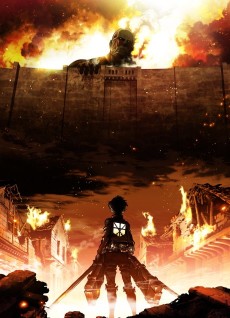 ANIME ActionShingeki no Kyojin
ANIME ActionShingeki no Kyojin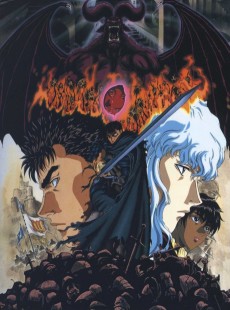 ANIME ActionKenpuu Denki Berserk
ANIME ActionKenpuu Denki Berserk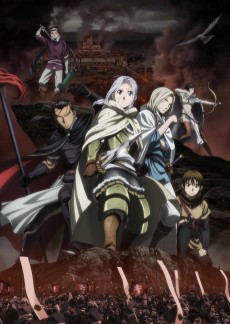 ANIME ActionArslan Senki (TV)
ANIME ActionArslan Senki (TV)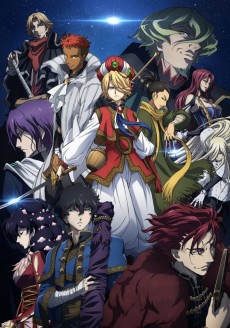 ANIME AdventureShoukoku no Altair
ANIME AdventureShoukoku no Altair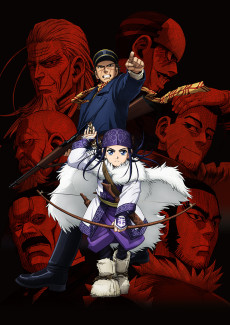 ANIME ActionGolden Kamuy
ANIME ActionGolden Kamuy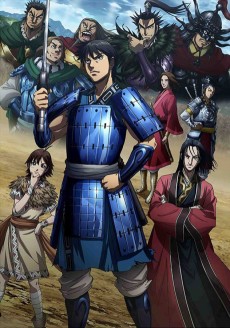 ANIME ActionKingdom 3rd Season
ANIME ActionKingdom 3rd Season
SCORE
- (4.35/5)
TRAILER
MORE INFO
Ended inDecember 30, 2019
Main Studio Wit Studio
Trending Level 14
Favorited by 27,317 Users
Hashtag #VINLAND_SAGA

